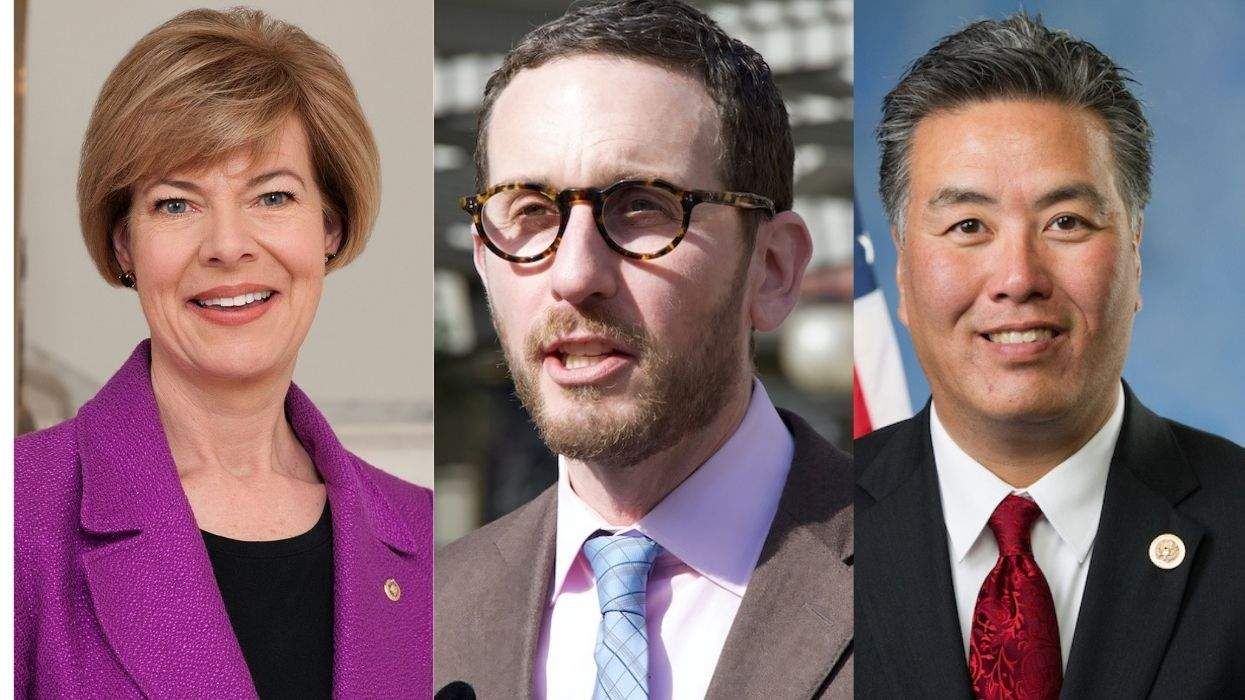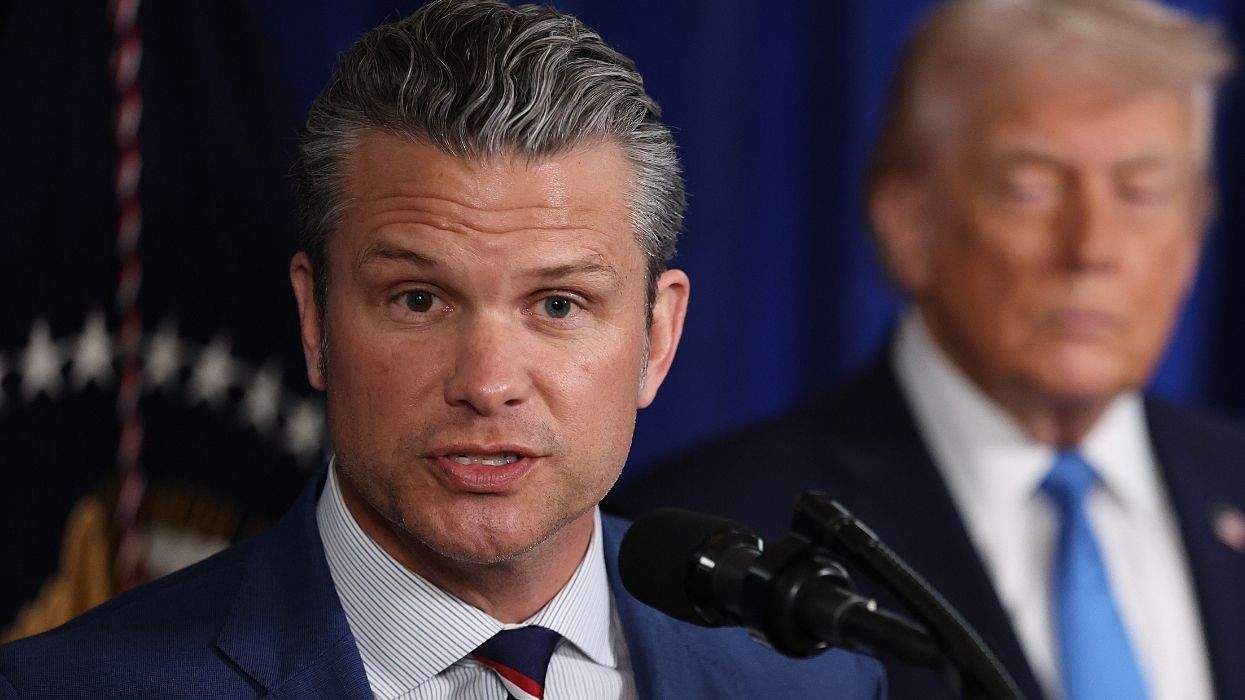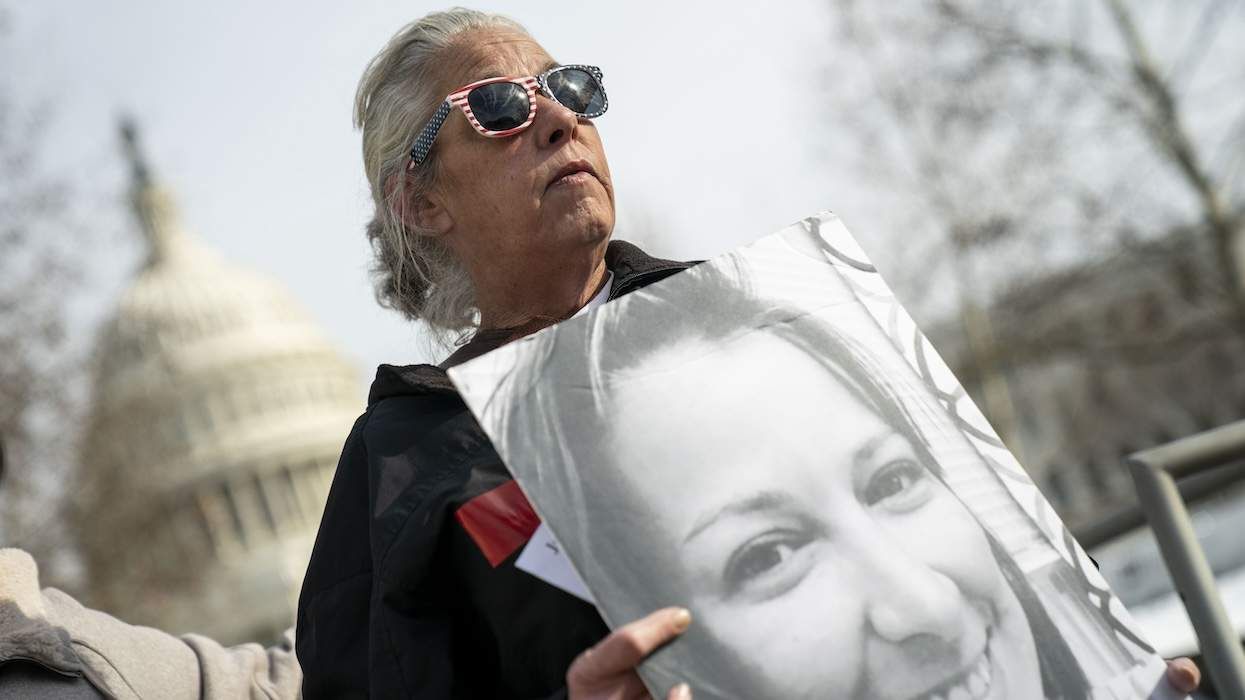The Department of Justice is coming to the defense of the Defense Department in fighting a lawsuit filed by Chelsea Manning, the convicted intelligence officer who is undergoing a government-funded and approved gender transition.
As she made clear in a letter she wrote while behind bars, published in Truthout in September, she wants to grow her hair as long as that of female prisoners, who are housed separately from Manning and her fellow inmates at the military penitentiary in Fort Leavenworth, Kan. Men -- and Manning -- are required to keep their hair no longer than two inches off the scalp.
But prison officials forced her to cut her hair in September. Manning explained on Medium.com why she claimed in her lawsuit that her military haircut makes her feel like a "freak" and a "weirdo":
"I felt gross -- like Frankenstein's monster wandering around the countryside avoiding angry mobs with torches and pitchforks."
According to Gay Star News, she wrote she was left feeling "humiliated, hurt and rejected." Manning said she "cried and cried and cried and sniffled a little bit, and then cried some more" and felt like giving up.
"Chelsea's demand is simple," said Chase Strangio, Manning's lawyer from the American Civil Liberties Union's Lesbian, Gay, Bisexual, and Transgender Project. "That she be treated with her medically necessary treatment and like all other women in military custody. Her fight is central to the pursuit for justice for transgender people and for those who are incarcerated and we are honored to fight alongside her."
Manning is currently serving a 35-year sentence for leaking sensitive documents to WikiLeaks.
The ACLU today released a copy of the brief filed by DOJ in support of the Pentagon and Secretary of Defense Ashton Carter. The brief endorses the motion filed by the DOD to dismiss the lawsuit, claiming Manning's case has no merit.
The DOJ made a case for how the federal prison is run and what might happen if Manning were to have a feminine hairstyle to match her changing appearance as a result of hormone treatment:
"Manning is not similarly situated to the female military inmates to which Manning compares herself. ... Those female inmates are confined in different facilities with different grooming standards, whereas Manning is confined at the [United States Disciplinary Barracks], a military prison for men that has a uniform rule of no hair longer than two inches. Making an exception to the USDB's generally applicable hair restriction would pose a significant security risk, and would undermine the USDB's important military mission. "
The brief states that the colonel in charge of the prison -- who in February approved Manning's hormone treatments -- was given a "recommendation that the wear of a feminine hairstyle is medically appropriate." But after considering "all associated safety and security risks presented," Col. Erica Nelson determined that "permitting Inmate Manning to wear a feminine hairstyle is not supported by the risk assessment and potential risk mitigation measures at this time."
Justice officials wrote in their brief that Nelson's decision to refuse her to let her grow out her hair "is substantially related to important governmental interests -- i.e., ensuring safety and security within a military prison environment."
The DOJ did not respond to The Advocate's request for comment or to confirm its role in the Manning case.
The ACLU issued a press release including a quote from Manning:
"I believe that defining ourselves in our own terms and in our own languages is one of the most powerful and important rights that we have as human beings. Presenting myself in the gender that I am is about my right to exist. What the government is basically telling me is 'you cannot exist,' that 'you are wrong,' and that 'you do not exist.' What they are doing is taking away our right to exist. I think this is the kind of situation that justifies all kinds of terrible things like ignorance, maltreatment, torture, murder, and genocide.
"Nobody knows your gender more than you do. No--one. You do not know my gender better than I do. A doctor doesn't know it better than me. My parents don't know it better than me. No one experiences my gender in the way that I experience it. Gender presentation should reflect the person that you are. When you lose control of your gender presentation you lose an important aspect of your identity and existence."
Read the Justice Department's full brief, as provided by the ACLU, here.




































































Charlie Kirk DID say stoning gay people was the 'perfect law' — and these other heinous quotes